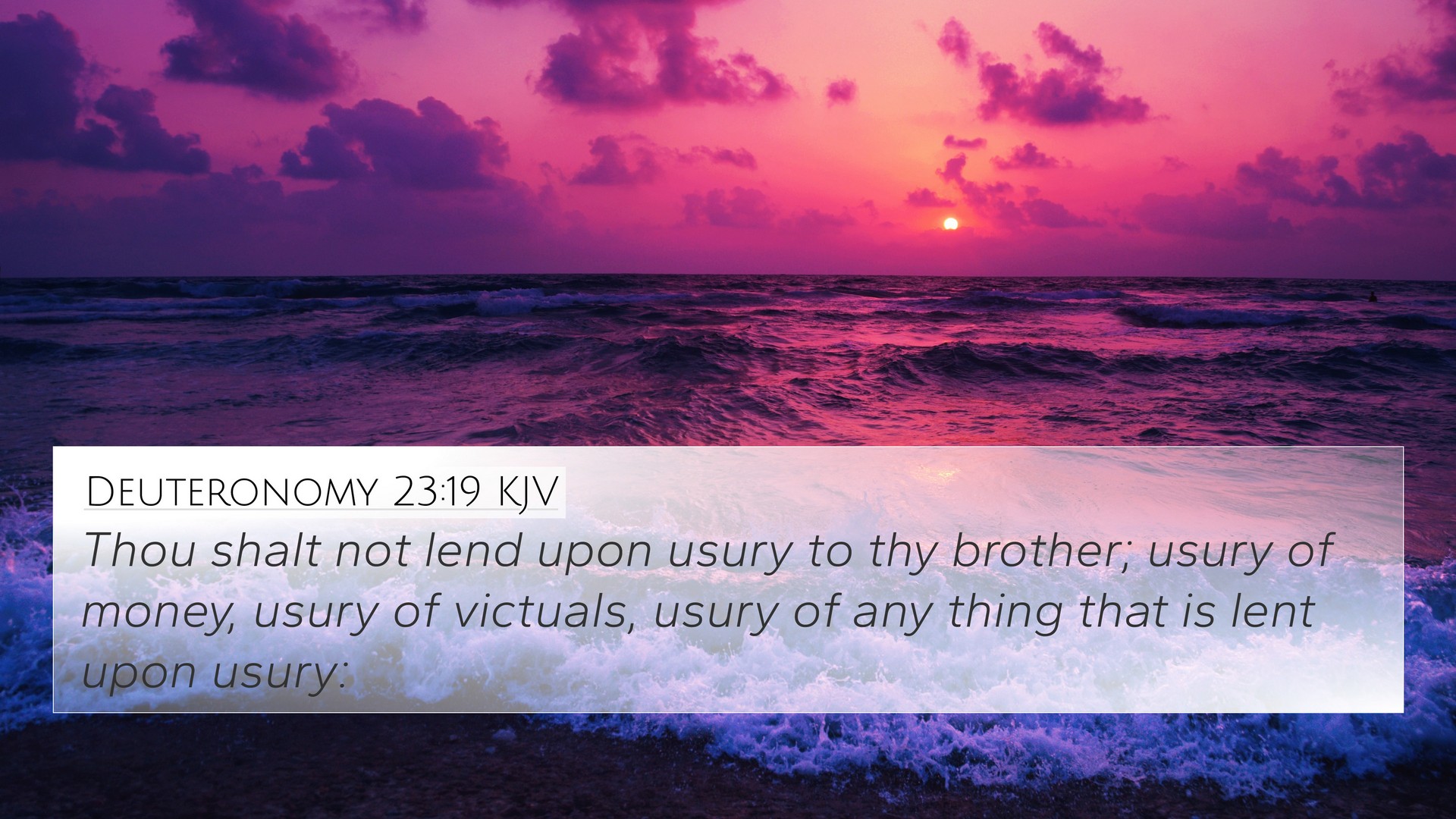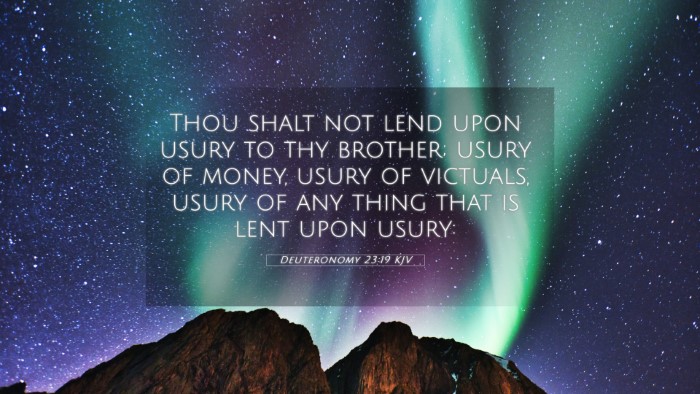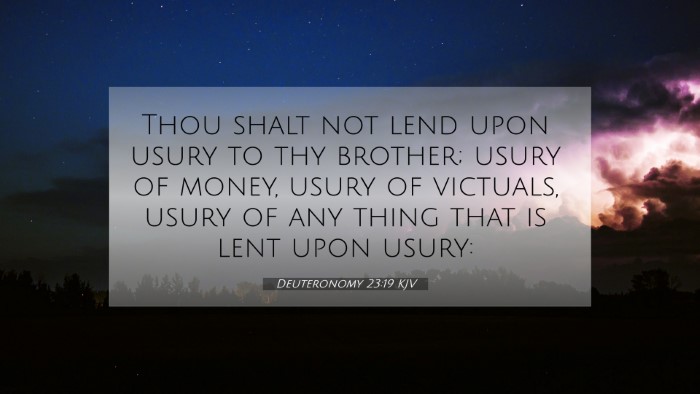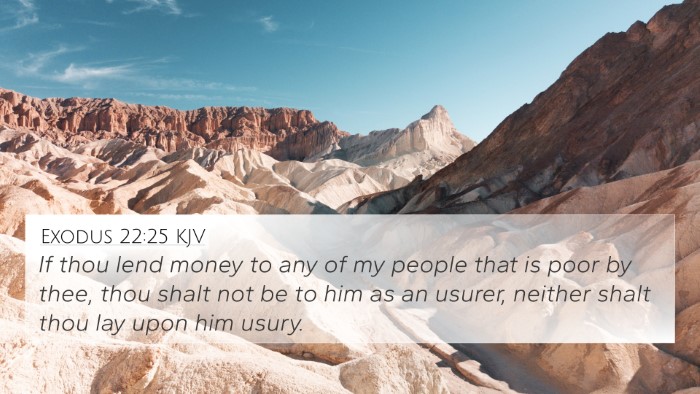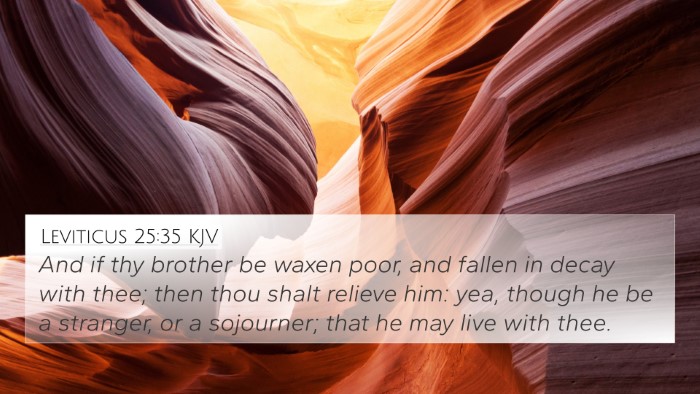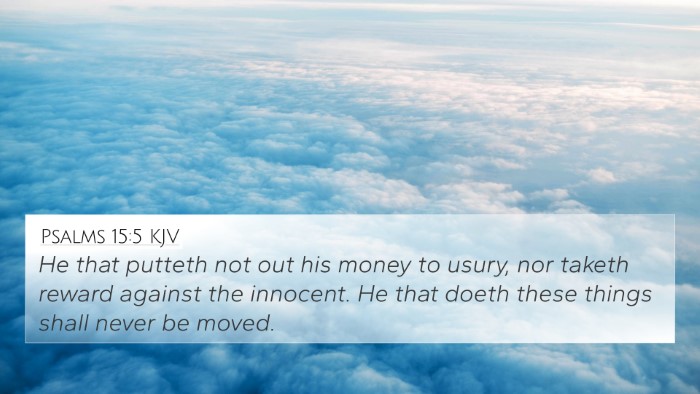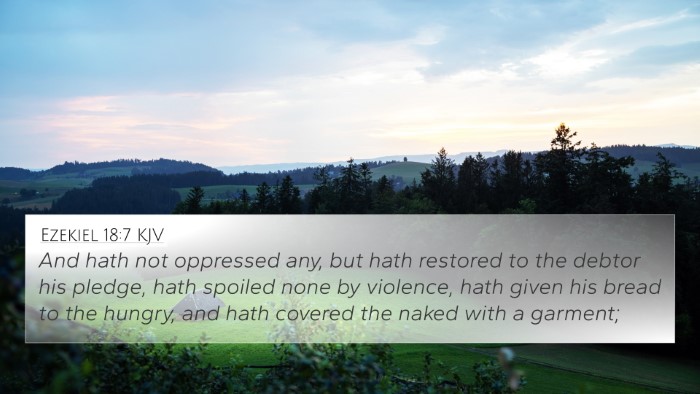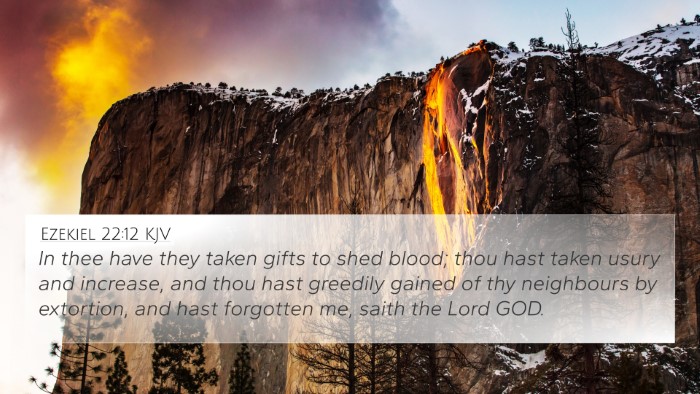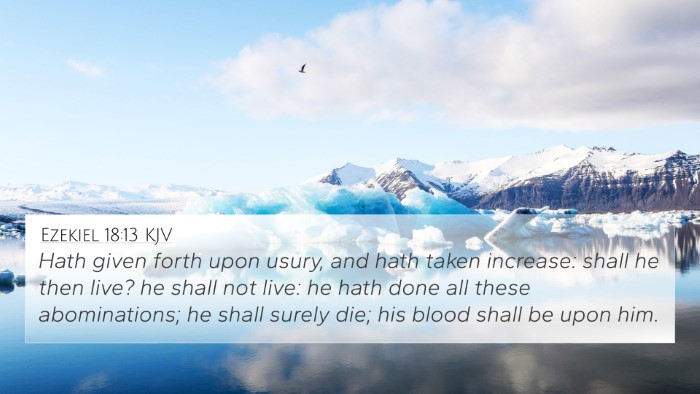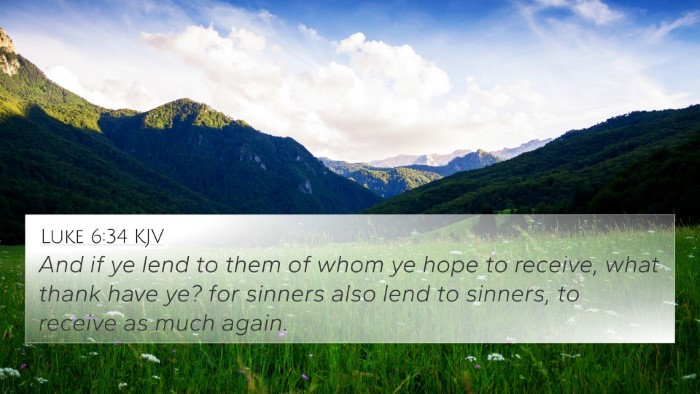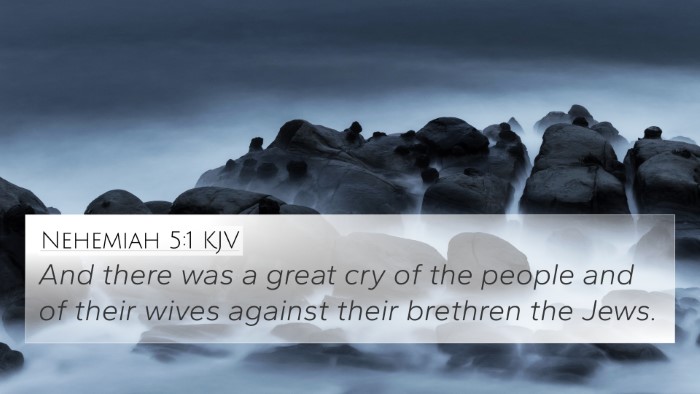Understanding Deuteronomy 23:19
Verse: "You shall not charge interest to your brother—interest on money or food or anything that is lent out at interest." (Deuteronomy 23:19, NKJV)
Summary of Meaning
Deuteronomy 23:19 addresses the ethical guidelines surrounding lending practices within the Israelite community. The prohibition against charging interest signifies a broader theological concern for justice, compassion, and community welfare. The verse encourages a spirit of generosity and support among the people of God, emphasizing their shared identity and responsibilities toward one another.
Insights from Public Domain Commentaries
Matthew Henry's Commentary
Matthew Henry highlights the importance of charity and the prohibition against exploiting fellow Israelites financially. He suggests that God's people should care for one another’s needs rather than seeking personal gain at the expense of others. This principle underscores the deep ethical obligations inherent in the covenant community.
Albert Barnes' Notes on the Bible
Albert Barnes explains that the prohibition against interest serves to protect the vulnerable within society. He notes that while lending at interest is common in many cultures, this specific guidance creates a distinct standard for the Israelites—a mechanism ensuring that those in need are treated with kindness and respect, fostering community solidarity.
Adam Clarke's Commentary
Adam Clarke provides insight into the historical and cultural context of the command. He argues that the prohibition of interest was intended not only for equity but to encourage a culture of mutual aid. Clarke emphasizes that the motivation behind this law reflects God’s character, which prioritizes mercy and communal responsibility over profit.
Key Themes in Deuteronomy 23:19
- Community Welfare: The verse emphasizes the importance of caring for fellow community members.
- Ethical Lending: A call for fairness and justice in financial dealings.
- Shared Identity: Encourages the understanding that all community aspects are interconnected.
- Divine Justice: Reflects God’s desire for equitable treatment among His children.
- Historical Context: Positioned within ancient Near Eastern practices concerning finance.
Bible Cross-References
The following Bible verses complement or relate to the themes found in Deuteronomy 23:19:
- Exodus 22:25: "If you lend money to any of My people who are poor among you, you shall not be like a money lender to him; you shall not charge him interest."
- Leviticus 25:36-37: "You shall not lend him your money for interest, nor lend him your food at a profit."
- Proverbs 28:8: "He who increases his wealth by exorbitant interest gathers it for him who is gracious to the poor."
- Psalms 37:26: "He is ever merciful, and lends; and his descendants are blessed."
- Nehemiah 5:7-10: Nehemiah admonished the nobles for exacting interest from their brethren; a reflection of communal integrity.
- Matthew 5:42: "Give to him who asks you, and from him who wants to borrow from you do not turn away."
- Luke 6:34-35: "And if you lend to those from whom you hope to receive back, what credit is that to you? For even sinners lend to sinners, to receive as much back."
- James 2:15-16: Discusses caring for those in need as a primary expression of faith.
- 1 Timothy 6:10: "For the love of money is a root of all kinds of evil..." which cautions against greed, reflecting the heart of Deuteronomy 23:19.
- Romans 13:8: "Owe no one anything except to love one another..." which connects the ethical dimensions of lending to the broader command of love.
Applying the Principles Today
The teachings of Deuteronomy 23:19 apply today as an ethical framework for financial interactions.
-
Generosity: The spirit of giving without expecting returns fosters community and strong relationships.
-
Ethical Business Practices: Ensuring fairness and respect in financial dealings reflects the heart of God’s laws.
-
Community Support: Highlighting the need for communities to support their most vulnerable members without exploitation.
Final Thoughts
Deuteronomy 23:19 challenges believers to reflect on their financial practices and to prioritize community welfare over personal gain. By understanding and applying these principles, modern readers can cultivate a spirit of generosity and reflect God’s heart for justice. Engaging with the rich insights of public domain commentaries allows for a deeper grasp of the scriptural text and its implications, fostering a robust inter-Biblical dialogue that enriches faith and community.
